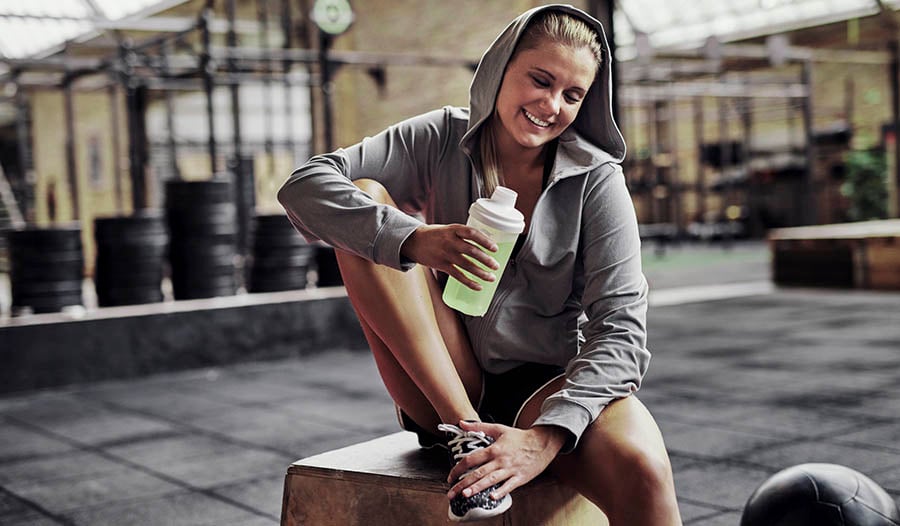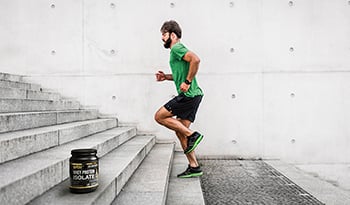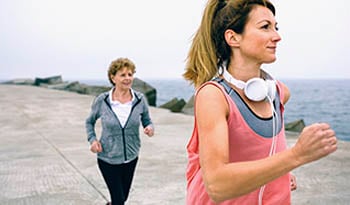Ways to Replenish Electrolytes After a Workout
DISCLAIMER:This blog does not intend to provide diagnosis...

Electrolytes are the minerals found in sweat and other bodily fluids. This includes sodium, chloride, potassium, magnesium and calcium. When we exercise and as we sweat, we lose electrolytes. The most common electrolyte is sodium followed by chloride, then potassium.
Why Are Electrolytes Important?
Electrolytes are needed to send electrical impulses to the heart, maintain fluid balance inside and outside of cells, and signal muscle contraction. When electrolytes are lost through sweat and not replenished, it can cause muscle cramps. Dangerously low sodium levels can occur when there is a large amount of sodium lost through sweat and water is consumed without replenishing sodium. This is referred to as hyponatremia. That’s why it is so important to replenish electrolytes (as well as fluid) during hot and humid conditions and during long durations of activity.
What Is the Best Way to Replenish Electrolytes?
Many people consume electrolyte drinks to replenish electrolytes, but not all electrolyte drinks are created equal. Beware of drinks high in sugar, artificial sweeteners, or food coloring. If your electrolyte drink is a bright neon color, that might be a problem. There are some good low sugar and natural electrolyte drink options available. Keep in mind that electrolytes are not the only important thing to replenish after a workout. It is generally a good idea to replace electrolytes as well as protein and carbohydrates for muscle building, repair and recovery. Consider a post-race recovery drink that combines all three. Plus you get the added benefit of additional fluids.
Are you looking for more natural ways to replace electrolytes and fluids? Broth or broth-based soups are great because they usually contain fluids and sodium. However, this may not be the most desirable option on a hot summer day. Milk can be very cold and refreshing and contains electrolytes, carbohydrates and protein. In fact, a glass of milk contains 8 grams of protein, 12 grams of carbs, about 100 mg of sodium, 380 mg potassium and 27 mg of magnesium. Chocolate milk might work well for a very active individual needing additional carbohydrates post exercise. Greek yogurt has all of these benefits and includes more protein. Consider adding some fruit to Greek yogurt to get additional carbohydrates and potassium. Not everyone can tolerate milk and milk products and unfortunately, the milk alternatives generally don’t have all the protein, carbohydrates and electrolytes that are found in cow or goat’s milk.
Fruit and vegetables can be a great post workout food because they contain carbohydrates, potassium and fluids. Fruits and vegetables are not a great source of sodium so consider adding other sodium-rich foods to the mix or add a little sea salt to fruit for additional sodium and chloride. Watermelon can be very refreshing post-exercise with a sprinkle of sea salt.
Adding nuts and seeds to a post-workout snack can be a great way to get additional magnesium and calcium. Almonds and pumpkin seeds are a good source of these minerals and if salted would contain the additional sodium needed.
Coconut water can also be a natural alternative to an electrolyte drink as it contains a high amount of potassium and has some natural carbohydrates. It is not, however, a great source of sodium.
After a particularly long and challenging workout (especially in hot and humid conditions) consider making a smoothie with several of these ingredients to maximize the benefits. This could include fruits high in potassium (mango, banana, oranges or even avocado), Greek yogurt, nuts or seeds such as chia seeds, coconut milk for the fluid, and a dash of sea salt. This will cover all the post-exercise recovery needs plus help replenish electrolytes and fluids.

 By Katie Kissane MS, RD, CSSD
By Katie Kissane MS, RD, CSSD


